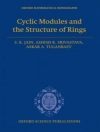Dr. Sudhakar Srivastavais an Assistant Professor. He obtained M.Sc. in Botany from University of Lucknow in 2002 and Ph.D. in Botany from CSIR-National Botanical Research Institute (CSIR-NBRI) and University of Lucknow in 2008. After obtaining Ph.D., he served as Scientific Officer in Bhabha Atomic Research Centre (BARC), Mumbai from June, 2009 to March, 2014 and then he moved to the Institute of Environment and Sustainable Development (IESD), Banaras Hindu University (BHU), in April, 2014. He has more than sixteen years of research experience in the field of plant-metal interactions with major interest on arsenic stress responses of plants. He has published 65 research articles and 20 review and letter articles in high impact International and National journals. He has also published 20 book chapters in the books of International repute and few general articles in popular magazines and websites. He has also received several awards for his contributions, among which the notable ones are Young Scientist Award of National Academy of Sciences, India (NASI), Allahabad in 2011, Young Scientist Award from Uttar Pradesh Council of Science & Technology (UPCST) in 2013-2014 and Young Scientist Award from Science and Engineering Research Board (SERB) in 2015. Dr. Srivastava is also NAAS Associate of National Academy of Agricultural Sciences and a life member of several societies as well as non-governmental organizations. He is also an Associate Editor of reputed International journals, Acta Physiologiae Plantarum and Frontiers in Ecology and Evolution. He is also an expert reviewer of several journals and project funding agencies.
Dr. Penna Suprasanna is a Senior Scientist & Head of Plant Stress Physiology and Biotechnology Group, Nuclear Agriculture and Biotechnology Division, Bhabha Atomic Research Centre, Mumbai, and is the Professor, Homi Bhabha National Institute, Department of Atomic Energy, Mumbai. Dr. Suprasanna made significant contributions to crop biotechnology research through radiation-induced mutagenesis, plant cell and tissue culture, genomics, and abiotic stress tolerance. His research on radiation-induced mutagenesis and in vitro selection in sugarcane yielded several agronomically superior mutants for sugar yield and stress tolerance. He has made intensive efforts to apply radiation mutagenesis techniques in vegetatively propagated plants through collaborative research projects with several national and international bodies (IAEA, Vienna). He is also serving as the DBT Expert/Nominee on Biosafety committees. He is the recipient of the “Award of Scientific and Technical Excellence” by the Department of Atomic Energy, Government of India; is the Fellow of Maharashtra Academy of Sciences, Andhra Pradesh Academy of Sciences, Telangana Academy of Sciences, and Association of Biotechnology. Dr. Suprasanna has published more than 250 research papers/articles in national and international journals/books, edited two Springer books, and has guided several doctoral students. His research is focused on molecular biology of abiotic stress tolerance and salt-stress adaptive mechanisms in plants. The research group led by him has successfully identified novel micro RNAs, plant bioregulators besides validating the concept of redox regulation toward abiotic stress tolerance and crop productivity.
Dr. Ashish Kumar Srivastava is presently working as Scientific Officer in Bhabha Atomic Research Centre, Mumbai. His research is focussed on developing strategies for enhancing crop resilience towards different abiotic stresses. The stimulatory potential of thiourea (a reactive-oxygen species scavenger) has been demonstrated for enhancing stress tolerance and crop productivity through lab and small-scale field experiments, and by conducting multi-location field trials at salt- and drought-affected fields of Rajasthan. A small-scale technology has been developed for increasing yield and reducing arsenic accumulation from rice grains. Besides, thiourea has been used as a chemical probe for delineating redox-regulatory components of stress tolerance. He has proposed a bifurcative model of thiourea action wherein redox homeostasis acts as “central” point to regulate gene-expression through mi RNA and hormones. To summarize, he is employing the combination of physiology, molecular biology and biotechnology to understand crops behavior under stress and develop suitable strategy to minimize stress-induced yield losses in different crop plants. He has more than 40 research and review articles and book chapters to his credit. He has been awarded Young Scientist Award of National Academy of Sciences, India (NASI), Allahabad in 2018, Young Scientist Medal from Indian National Science Academy (INSA) in 2014 and Young Scientist Award from Department of Atomic Energy (DAE) in 2014. He has also received President International Fellowship Award from Chinese Academy of Sciences, China in 2016 and and EMBO Short term Fellowship in 2011.
4 Ebooks par Ashish K. Srivastava
Sudhakar Srivastava & Ashish K. Srivastava: Plant-Metal Interactions
Metal toxicity and deficiency are both common abiotic problems faced by plants. While metal contamination around the world is a critical issue, the bioavailability of some essential metals like zinc …
PDF
Anglais
€223.63
S. K. Jain & Ashish K. Srivastava: Cyclic Modules and the Structure of Rings
This unique and comprehensive volume provides an up-to-date account of the literature on the subject of determining the structure of rings over which cyclic modules or proper cyclic modules have a fi …
PDF
Anglais
DRM
€155.60




